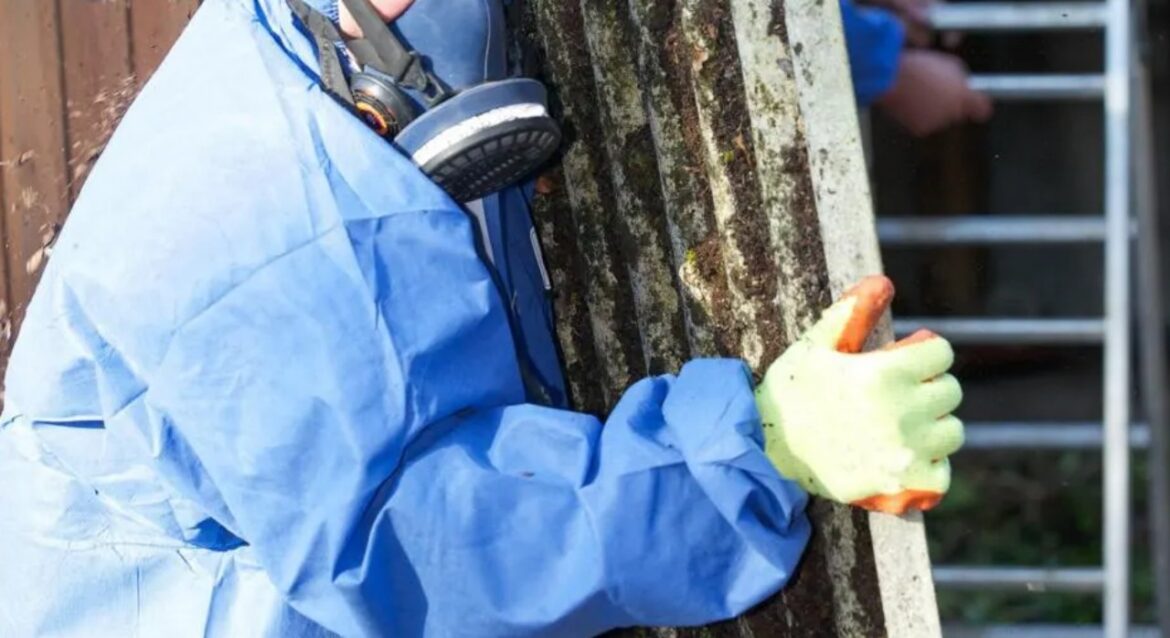When it comes to hazardous materials, asbestos sits atop the list of silent and invisible threats that can wreak havoc if poorly managed. For the uninitiated, the term “asbestos” might conjure images of outdated building materials or industrial settings, yet its dangers are very much present in our modern living spaces. In the face of real health risks, hiring the right asbestos contractor becomes not just a discretionary convenience, but an ethical and legal imperative.
Before you seek professional help, it’s crucial to comprehend the nature of the problem at hand. Asbestos refers to a group of naturally occurring minerals that were heavily used in the past due to their durability and fire-resistant properties. However, prolonged exposure to airborne asbestos fibres is linked to severe respiratory conditions, including asbestosis, lung cancer, and mesothelioma. These risks make asbestos a concern for anyone involved in the renovation, demolition, or maintenance of older structures.
The Contractor’s Role and Relevance
Although the general populace might be aware of the dangers of asbestos, its unassuming presence in homes and buildings often goes unnoticed. This is where these contractors step in. They are professionals trained in the safe identification, containment, and removal of asbestos. Their role is pivotal in ensuring that asbestos-infested structures are handled with the requisite care to protect public health and that the decontamination process is adequately documented for legal compliance.
1. Licensing and Certification
Your first filter when selecting an asbestos contractor should be their legal credentials. Licenses and certifications are not just accolades; they are proof that the contractor adheres to industry standards and has the requisite training to perform asbestos-related work safely. Regulatory bodies vary from state to state, but in most jurisdictions, these contractors need to hold specific certifications to practice legally. Always ask for their credentials before proceeding.
2. Experience with Residential or Commercial Projects
Not all contractors are equally experienced in dealing with residential or commercial projects. Some might excel in industrial settings, while others have honed their craft in homes. Seek out contractors who can demonstrate a proven record of dealing with asbestos in settings similar to your own, and never hesitate to ask for case studies or before-and-after documentation to validate their experience claims.
3. Proof of Insurance
While directly asking about insurance can seem combative, it’s vital for safeguarding both you and the contractor. An uninsured contractor can put you at substantial legal and financial risk, potentially resulting in liabilities for mishaps during the project. Ensure the contractor carries comprehensive liability insurance that specifically includes asbestos-related claims.
4. Compliance with Local and Federal Regulations
Adhering to regulations isn’t just a matter of ethical business practice; it’s a legal mandate. Familiarize yourself with the local and federal asbestos regulations that apply to your project and ensure the contractor knows them implicitly. This is not about playing “Gotcha!” with red tape; it’s about protecting yourself and ensuring your contractor respects and prioritizes safety and legality.
5. The Team and Their Expertise
An asbestos project rarely consists of a lone contractor. It’s a team effort that requires specialization in various aspects, from initial surveying to air monitoring during removal. Inquire about the team members who will be on-site, their roles, and their respective experience levels. This is also a good time to ask about any subcontractors, ensuring that the entire workforce meets your standards and expectations.
6. Transparency in the Bidding Process
Clarity in the bidding process is a crucial step in securing a trustworthy asbestos contractor. A reputable company will be transparent about all costs involved, from initial inspection to final waste disposal. Make sure you understand the full scope of the estimate and that it includes all potential services, such as containment, testing, and cleanup. Compare bids from different contractors to ensure you’re getting a fair deal.
7. References and Testimonials
Personal recommendations or testimonials can provide peace of mind, assuring you that the contractor’s performance has been satisfactory in the past. The absence of references can be a red flag, while a wealth of positive feedback can signify a strong track record. Contact previous clients if possible, and ask important questions about service quality, communication, and adherence to budget and schedule.
8. Plans for Waste Disposal
The disposal of waste containing asbestos is a critical and often overlooked aspect of an asbestos project. Improper disposal can lead to environmental contamination and hefty fines. The contractor must have a clearly outlined waste management plan, including the use of appropriately licensed disposal sites and transportation. Question the contractor closely on how they plan to handle this aspect of the operation.
Conclusion and Your Next Steps
Navigating the landscape of hiring an asbestos contractor can be daunting, given the gravity of the health risks involved and the intricacies of statutory compliance. Yet, by understanding the significance of the role these professionals play and proceeding through the preparation checklist provided, you can make an informed decision that safeguards health and legal peace of mind.
Remember that engaging with a topic as potent as asbestos presence and removal isn’t just about finding a contractor it’s about participating in the welfare of the community, your peers, and the environment at large. Whether you are a homeowner looking to renovate, a property manager maintaining a commercial building or a health professional concerned with regulatory standards, these considerations are fundamental to your approach in selecting a contractor.
Your next move should encompass further research into local regulations, in-depth interviews with potential contractors, and a thorough review of project proposals. By collaborating with the right professionals, you’re not only managing risks but also promoting a culture of safety and accountability that is integral in protecting public health.





